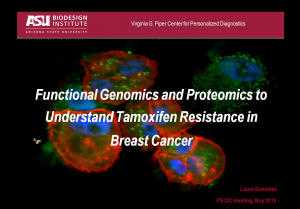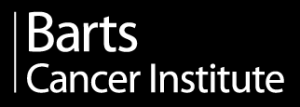May 20
2010
Biodesign Auditorium
727 E. Tyler St. Tempe
AZ 85287
We are pursuing studies to identify and characterize genes that regulate critical events involved in the development of resistance to hormonal therapies in breast cancer. Approximately two-thirds of breast cancers require estrogen to grow. Estrogen receptor (ER) – the protein activated by estrogen, and the proteins that it activates – are excellent targets for hormonal therapy in these patients. Tamoxifen is an anti-estrogen drug that has been the gold standard for hormonal therapy at all stages of breast cancer, and has improved patient survival. However, the success of tamoxifen therapy is limited by natural and/or acquired tumor resistance. Approximately 40{236bd5e292587b885399ce1fe93b84c86ca4f34851d3c4bf06f3f0da35a3ccbb} of ER patients will not respond to tamoxifen therapy, and major efforts are underway to understand the reasons.
In our lab, we produced a series of breast cancer cell lines that were either highly sensitive or naturally resistant to tamoxifen. We are using these cells to study the factors that lead to drug resistance, through the use of gene expression profiles and high throughput approaches.




